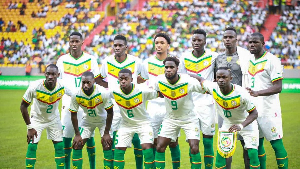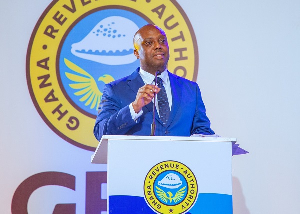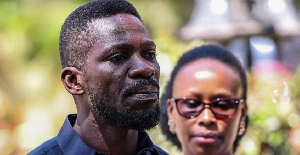Ghana was nowhere near the status of the Organization of Petroleum Exporting Countries (OPEC) and was no dream of joining it, Ato Ahwoi, chairman of the Board of Directors of the Ghana National Petroleum Corporation (GNPC), declared here on Friday.
Addressing a dialogue between Ghana?s oil development partners including Tullow, Kosmos, Anadarko, GNPC, EO Group and Sabre, Ahwoi warned Ghanaians against higher expectations on the offshore oil field that was discovered in 2007.
?But we have hyped the prospects of Ghana?s oil so much that the expectations now far outweigh the reality on the ground,? he said, calling on all stakeholders to help manage the expectations.
At the time of discovery, the Jubilee oil field was declared as the largest oil field discovered in West Africa in the last decade and a half, with about 1.5 billion barrels of oil in 17 wells.
The dialogue, the first between officials and experts of the development partners, was set to discuss all issues on oil development in the West African country, which planned to start commercial production of oil before the end of the year.
In an interview with Xinhua earlier this week, a senior official of the Minister for Finance and Economic Planning said that contrary to earlier expectation of daily production of at least 90,000 barrels, Ghana could only produce 74,000 barrels of oil per day next year.
Comparing to from other African countries such as Nigeria, which produces 2.5 million barrels a day, Angola, 2 million barrels a day, and Libya, over one million barrels, Ahwoi said Ghana?s oil was just minimal at the current stage and it was important for expectations to be managed so as to avoid social problems.
Dai Jones, General Manager of Tullow Ghana, echoed the argument, saying that Ghana had no oil industry yet though and it did not take just one field to build oil and gas industry.
?Jubilee is just the first step towards establishing an oil industry, however, more oil fields need to be discovered and run for an oil and gas industry to be in place,? he emphasized.
?Ghana will not become Saudi Arabia overnight. You can?t walk before you crawl, Jones said.
A traditional ruler and retired educationist, Nana Abena Appee, called on stakeholders to use grassroots consultations with the indigenous people to make them understand the current realities.
She said the coastal dwellers, most of whom were fisher-folks, would have their livelihoods truncated and needed to be re-assured in concrete terms that alternative livelihoods would be provided for them.
?We must guard against activities that would in the long run alienate the indigenes?, as she believed that would make the people to start resisting certain projects.
She called for education for the people, to prepare them for the realities of Ghana?s oil that were going to hit them.
General News of Saturday, 27 November 2010
Source: Xinhua News Agency












